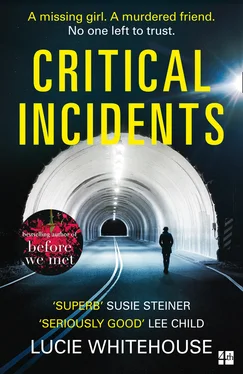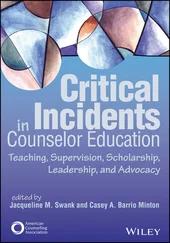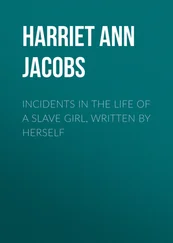Hanley’s. Battered floral address book in hand, Valerie had given them the number. ‘They make photo frames and candlesticks,’ she said. ‘Hip flasks and the like. Corporate gifts.’
‘They’d have had a demand by now, wouldn’t they?’ said Robin. ‘Thursday to Tuesday – five days?’
‘Yes. Unless …’ Maggie had glanced across. ‘Julie Dart.’
Mentally shafted as she was, it had taken Robin three or four seconds to connect the dots. Then she did.
The investigation into Sams had expanded beyond Stephanie Slater. Based on similarities in the two cases, West Yorkshire Police believed that a year earlier, in Leeds, he had abducted another woman – if woman was the word. Julie Dart had been just eighteen when he’d taken her, a kidnapping ‘dry run’ that went wrong; she’d managed to escape from the coffin-sized box and he’d returned to find her desperately trying to get out of his workshop. He’d killed her.
‘If there’d been a demand, we wouldn’t be on the case, obviously – the police would be all over it,’ Maggie said. ‘But if something went wrong , he – or they – might not have got that far. He might have killed her, jettisoned the plan, like Sams did.’
‘But if it is abduction, don’t you think a sexual motive’s more likely?’
‘I do. But all lines of enquiry at this stage – everything’s on the table until we get something solid. What else? There’s a new notebook in the glovebox there; let’s get some of this down.’
The list was on the table in front of Robin now, a spiral-bound page of parental pain from basic heartbreak to worst nightmare: she’d met someone and run away, upped and left; had an accident; overdosed; killed herself; been killed. The only good-news scenario, really, was that she’d needed to get away and had taken a break somewhere to clear her head. But then why not tell her mother, especially when they were so close? Why put her through this? And wouldn’t she have taken something with her – a few clothes, her washbag? The only things she could see were missing, Valerie said, were the clothes she’d walked out in that morning.
And then there was her phone.
‘Anything in her online stuff?’
Robin clicked back onto Facebook as Maggie stood and came around the table. The picture she’d been looking at was a social-media classic. Taken the Christmas before last, fourteen months ago, it showed Becca and Lucy with their heads together, big living-our-best-lives grins. Slight over-exposure made their lineless skin near-perfect. They were both wearing beanies – Becca’s navy and studded with little silver beads, Lucy’s dark burgundy with a scarf the same colour – and both had long wings of hair protruding from their hats like Afghan ears, Lucy’s light brown, Becca’s darker. In their hands were red cardboard cups, presumably the hot chocolate for sale at the stand behind them, beyond which, just visible, were the Palladian columns of the Council House in Victoria Square. Christmas Market with my bestie! Becca had written. Love winter!
Besties, BFFs – the terms hadn’t existed when she and Corinna were that age. Not that they would have used them anyway – they didn’t make a thing of their friendship like that. Even if she hadn’t been up to her ears in nappies and revision when she was twenty-two, Robin doubted she would have been slinging her arms around her anyway, huddling in for photo after photo. Corinna might have made her do it occasionally – she was more of a cuddler.
She moved sideways to give Maggie a better view. ‘Nothing that rings alarm bells,’ she said. ‘It’s what you’d expect – pictures of her and her mates at parties and pubs, a couple of weddings, the occasional cat video or viral thing of someone doing something stupid. Nothing provocative, no bikini pictures or underwear-posing. I’ve been through all the comments for the past two years and there’s no one creepy or over-keen, nothing that struck me as dodgy. Almost everyone appears in pictures from several different occasions, and I cross-referenced the less regular ones, who all seem bona fide , friends of friends, etc. I found Nick.’
‘Show me?’
Robin scrolled back to September and a picture of a man in jeans and a maroon Adidas top. He was about thirty with curly hair cut short at the sides, left longer on top. Possibly – local pride – he’d been going for the Peaky Blinders look but it came off more Gilbert Blythe in Anne of Green Gables . The darkness of it made his skin look slightly vitamin-deficient by contrast but he was attractive, tall and fit, muscle visible round the shoulders under the burgundy nylon.
‘Hm. Is there just Facebook?’
‘No, Instagram too.’ Robin toggled to @BeccaWoods95’s curated vision of the world. Birmingham, UK. Food, books, fashion, design. 152 posts, 95 followers, 241 following .
‘The last thing was this, four days before she disappeared.’ She moved the cursor over a picture of a bowl of spiced chickpea soup reposted from a cooking blog. ‘About half of the posts are food-related, mostly photos of things she made, with little comments.’ She clicked on a square captioned ‘ Sacher torte – worth every one of the 174,329 calories! ’
The rest was books and arty shots of silhouettes and trees, a few bits of interior design – nice chairs and rugs and kitchens – and then fashion, all pretty standard stuff. A woman in a green backless evening gown on a moonlit terrace was hashtagged Goals but the handful of reposts from fashion blogs were down to earth otherwise: women in superior combinations of boots, skinny jeans and enormous cardigans. It was a sort of rose-tinted, better-dressed version of real life. ‘And only three solo selfies – nothing by prevailing standards.’ A couple of weeks ago, in Shepherd’s Bush, Robin had seen a woman pouting into her phone by the green veg at Tesco.
‘Hm. What time did she say, again – Lucy?’
‘Four.’
‘I’ve just had an email from Roger Hanley; he can do four thirty at his office.’
The Jewellery Quarter. ‘You take him, then; I’ll take her?’
Maggie looked at her. ‘I thought – just for now – we could work together.’
‘Don’t worry, I’m fully trained.’
‘That wasn’t why I—’
‘It’s fine. I’m fine. I’m not going to fall apart.’ Brooking no argument.
Maggie hesitated, then sighed – All right, against my better judgement . She reached for her coat. ‘I’m going to run down and get a sandwich. What can I get you?’
‘Nothing. I’m okay for now.’
‘Robin.’
‘Something simple then – cheese and tomato. Thanks.’
Maggie shrugged the coat on. ‘Will you be all right here?’
‘For ten minutes, while you buy a couple of sandwiches?’
The door closed and Maggie’s boots clomped down the steep wooden staircase towards the street door. The office took up two rooms on the third floor of a red-brick building at the nether end of Cannon Street, above a hairdresser, opposite a bridal shop and the entrance to the parking garage where they’d left the car. Coming in, Robin had seen the city centre shops she remembered of old, Poundland and Coral bookies, multiple outlets selling cheap sportswear, but just down the street, apparently, there was now a large branch of Jigsaw.
‘Oh yes,’ Maggie had said, ‘we’re getting proper posh. We’ve got a Jack Wills and a Muji within a two-minute walk now, get us. I’m very partial to the Japanese stationery, I’ve got to admit; I’ve bought all sorts of bits and bobs – little staplers and notebooks and what have you. Can’t resist it.’
Downstairs, the door slammed shut. Robin stood up. Her eyes were dry from lack of sleep and the hour and a half she’d just spent staring at Becca Woodson’s life online. She stretched her neck and did a circuit of the dining table that dominated the main room. This was where Maggie took meetings, she said, and also where she did her desk work. The office had two laptops, one exclusively Maggie’s and an ageing Dell, which Robin would share with Lorraine, the woman who came in two days a week to do the billing and other paperwork. She was currently halfway through a fortnight in Lanzarote, Maggie said; she took a break in February every year, to help with her SAD.
Читать дальше










